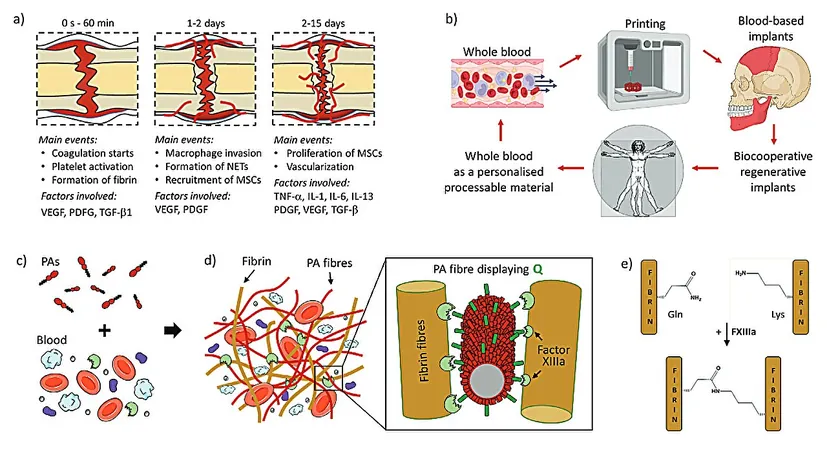
Shocking New Study Reveals How Social Anxiety Affects Visual Attention in Autistic Youth!
2024-11-21
Author: Nur
Groundbreaking Study Context
A groundbreaking study conducted by researchers at the renowned Yale Child Study Center sheds light on the interplay between social anxiety and visual processing in both autistic and non-autistic adolescents. Published in the Journal of Autism and Developmental Disorders, this research could revolutionize how we approach interventions for individuals on the autism spectrum.
Researcher Insights
Dr. James C. McPartland, the Harris Professor in the Child Study Center and senior author of the study, explained, “We explored the impact of social anxiety symptoms by assessing both autistic and non-autistic children and tracking their visual attention using a state-of-the-art eye-tracking camera.”
Key Findings
The results were eye-opening! Not only did the study confirm that children with autism consistently spent less time looking at faces overall, but it also highlighted a surprising trend: both autistic and non-autistic children who reported higher levels of social anxiety tended to avoid looking at the eyes of others.
Implications of Social Anxiety on Engagement
Dr. McPartland noted, “This indicates that social anxiety influences how children—regardless of their neurodevelopmental status—engage with others emotionally.” He emphasized the importance of addressing emotional responses in social interactions, noting it could significantly benefit those grappling with anxiety, whether or not they are on the autism spectrum.
Future Directions for Interventions
The implications of these findings are profound. Researchers suggest that tailored interventions could be more effective by recognizing the needs of anxious individuals in various social scenarios. Dr. McPartland elaborated, “For instance, support strategies will differ dramatically between individuals who do not understand the significance of eye contact and those who recognize its importance but struggle to maintain it.”
Conclusion
This innovative research opens new avenues for developing interventions that cater specifically to the emotional and social needs of autistic youth facing anxiety, potentially leading to improved outcomes in social engagement and overall mental health.



 Brasil (PT)
Brasil (PT)
 Canada (EN)
Canada (EN)
 Chile (ES)
Chile (ES)
 España (ES)
España (ES)
 France (FR)
France (FR)
 Hong Kong (EN)
Hong Kong (EN)
 Italia (IT)
Italia (IT)
 日本 (JA)
日本 (JA)
 Magyarország (HU)
Magyarország (HU)
 Norge (NO)
Norge (NO)
 Polska (PL)
Polska (PL)
 Schweiz (DE)
Schweiz (DE)
 Singapore (EN)
Singapore (EN)
 Sverige (SV)
Sverige (SV)
 Suomi (FI)
Suomi (FI)
 Türkiye (TR)
Türkiye (TR)